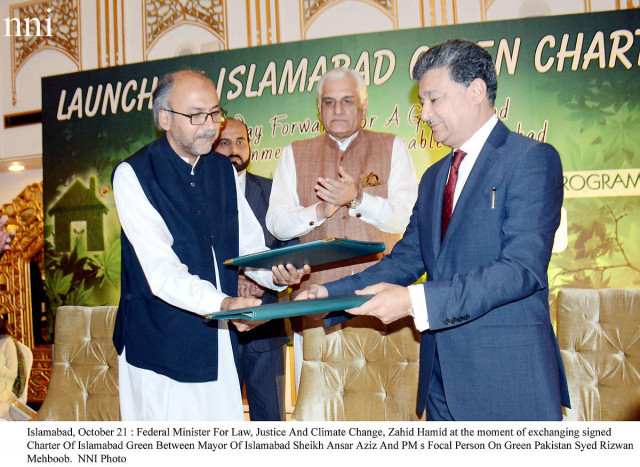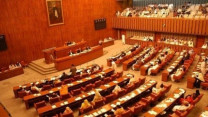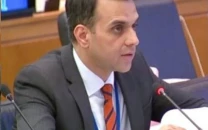Green Charter: Capital blazes new environmental trail
CDA, MoCC to increase renewable energy, tree cover share, conserve water

The city authorities would also be required to reduce the volume of untreated wastewater discharged by 10 per cent and adopt municipal wastewater guidelines in seven years through the expanded use of recycled water. PHOTO: NNI
By signing the charter, Islamabad has become the 101st city in the world, and the first in the country to adopt 21 action plans based upon the UN Urban Environmental Accords to improve over all environment of the city.
The charter was signed on Friday by IMC Mayor Sheikh Anser Aziz and Prime Minister’s Focal Person on Green Pakistan Rizwan Mehboob at a ceremony held at a local hotel.
The ceremony was witnessed by Minister for Climate Change Zahid Hamid and other senior government officials, representatives of Islamabad Chamber of Commerce and Industries and members of civil society.
Under the charter, the Capital Development Authority (CDA), Ministry of Water and Power (MWP), and Islamabad Electric Supply Company (IESCO) will adopt and implement a policy to increase the use of renewable energy to meet at least 10 per cent of the city’s peak electric load over the next seven years.
Furthermore, a citywide plan would be implemented to reduce carbon emissions in the capital by 25 per cent by 2030 in collaboration with MoCC, Enercon and CDA.
Moreover, CDA, Pakistan Environmental Protection Agency (Pak-EPA), and IMC will implement a user-friendly recycling and composting programme which aims to reduce per capita solid waste disposal at landfills and incinerators by 25 per cent in 10 years.
Additionally, CDA and IMC will ensure that there is an accessible public park or recreational open space within half-a-kilometre of every citizen’s residence in the city by 2020.
CDA, IMC and MoCC will also set a goal based on ecological and community considerations to plant and maintain tree, canopy coverage of at least 50 per cent of all sidewalk planting sites.
The CDA, IMC and MoCC will also pass legislations to protect critical habitat corridors and other key habitat characteristics.
CDA, IMC and the Capital Administration Development Division (CADD) would develop and implement a policy to expand affordable public transportation to residents in 10 years, while CDA and IMC will implement a policy to reduce the number of vehicles plying the roads with just one passenger onboard by 10 per cent over the next seven years.
CDA, IMC, MoCC, Pakistan Agriculture Research Council(PARC) and National Agriculture Research Council (NARC) will support locally-grown foods and kitchen gardens and ensure that 20 per cent of all city facilities (including schools) grow and use locally-grown, organic food within the next seven years.
To monitor the air quality in the capital, EPA, CDA and IMC will establish an air quality index and measure the level of air pollution and set a goal of reducing it by 10 per cent in seven years.
The CDA, IMC, EPA and MoCC will increase adequate access to safe drinking water, aiming at access for all by 2020. Simultaneously, Islamabad within its municipal limits, would adopt and implement polices to reduce water consumption by 10 per cent by 2020 through water conservation awareness campaigns and conservation technologies.
The city authorities would also be required to reduce the volume of untreated wastewater discharged by 10 per cent and adopt municipal wastewater guidelines in seven years through the expanded use of recycled water.
Published in The Express Tribune, October 22nd, 2016.





1724926799-0/Untitled-design-(7)1724926799-0-208x130.webp)













COMMENTS
Comments are moderated and generally will be posted if they are on-topic and not abusive.
For more information, please see our Comments FAQ